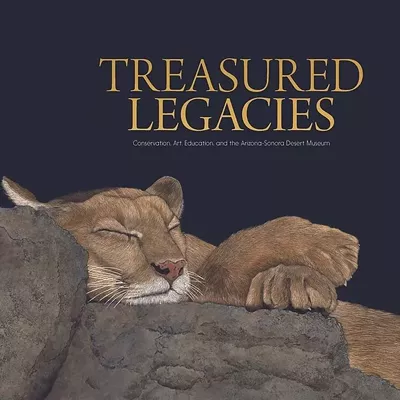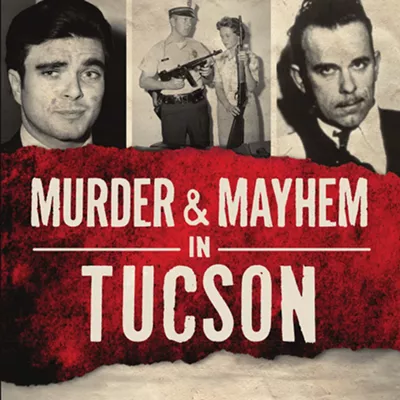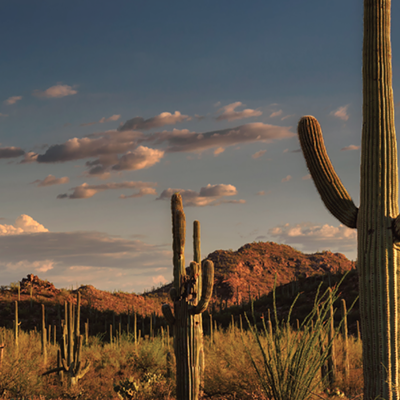During the recent election season, the presidential candidates (including so-called border-state Sen. John McCain) basically ignored the subject. Others have filled the void, spewing a toxic froth of anger, xenophobia, racism and just plain meanness. But worse than the vitriol has been what can only be described as a shocking lack of compassion for our fellow human beings--those who were born into circumstances less fortunate than the rest of us.
So whatever became of that quaint old concept of "Christian charity," or the other one about "doing unto others"? Perhaps we've gotten it wrong all these years. Maybe this whole "golden rule" thing is just another catchy bumper-sticker phrase.
Meanwhile, the bodies of the poor, the ones we call "illegals," pile up like so much litter on the white-hot ground of the Sonoran Desert. We sit in our overpriced, soon-to-be-foreclosed, air-conditioned Stepford homes, drinking mojitos and stealing music for our iPods. Or maybe we zip along in our giant SUVs, yacking on our cell phones and bleating pathetically because the authorities have finally decided to enforce the laws against speeding. George Orwell would recognize how in America, some people are more equal than others.
Even if you think you already know all there is to know about immigration, or you don't know diddly about it, you really need to read Exodus/Éxodo. It's not only the oddest coffee table book you'll see this year; it's one of the most important books of the brave new American century.
Start with the book's cover photo. It depicts one of those glorious blue-sky days in the Sonoran Desert. Bright colors like a spring wildflower bloom draw you into the image--and you suddenly realize these aren't flowers at all. They are human artifacts. Hundreds of cheap daypacks of every size, shape and color litter the ground. Mixed in are piles of clothing--pants, shirts, jackets, women's panties, baseball caps, socks. A discarded brassiere dangles from a tree like a sports pennant. There are boots, tennis shoes, cans of food, the ubiquitous Coke bottle and water jugs--scores and scores of water containers.
It's a drop point, a place where old lives are shed and where immigrants, the ones who have survived so far, emerge into the next stage of their new lives, for better or worse.
This is immigration as art, and the image is both sad and oddly beautiful.
The 1930s saw a failure of laissez-faire capitalism and the subsequent massive uprooting of Americans. It was a time of dislocation, fear and constant movement in search of both work and dignity. Some 70 years later, the failed economy is now something we call global, and a new wave of people is washing across the landscapes of America in search of hope. Exodus/Éxodo documents this rerun of history.
The highest attainment for a writer or photographer is to create a work that fundamentally changes how people see and understand their world. In this book, writer Charles Bowden and photographer Julián Cardona have done exactly this. They have together captured in words and images the most profoundly divisive and important issue of our time.
Bowden, who lives in Tucson, writes, "... (W)e are seeing a future where the poor move because to stay in place is doom. Mexico is our intimate brush with the majority of the planet where people have little or nothing and the future in their homelands promises even less." He observes, "They (Mexican immigrants) are no longer migratory workers. They are refugees from a collapsing economy and a barbarous government, and their journey is biblical and we should call it Exodus." He then adds, "The solutions in political play are idiocy."
Cardona is a tough, brilliant photojournalist from Ciudad Juárez, Chihuahua, Mexico. His eye-popping, often heart-rending photography melds the sensibility of the photographers Dorothea Lange and W. Eugene Smith with the gritty reality of the famed New York street photographer Weegee. His work has been shown in Mexico, Europe and the United States, and he's spent a decade and a half documenting the impacts of globalization on the U.S.-Mexico borderlands.
Exodus/Éxodo shows us that while we may fight, deny or try to avoid the issue, nothing in the end can stop the will of a people determined to not only survive, but to survive with dignity.







